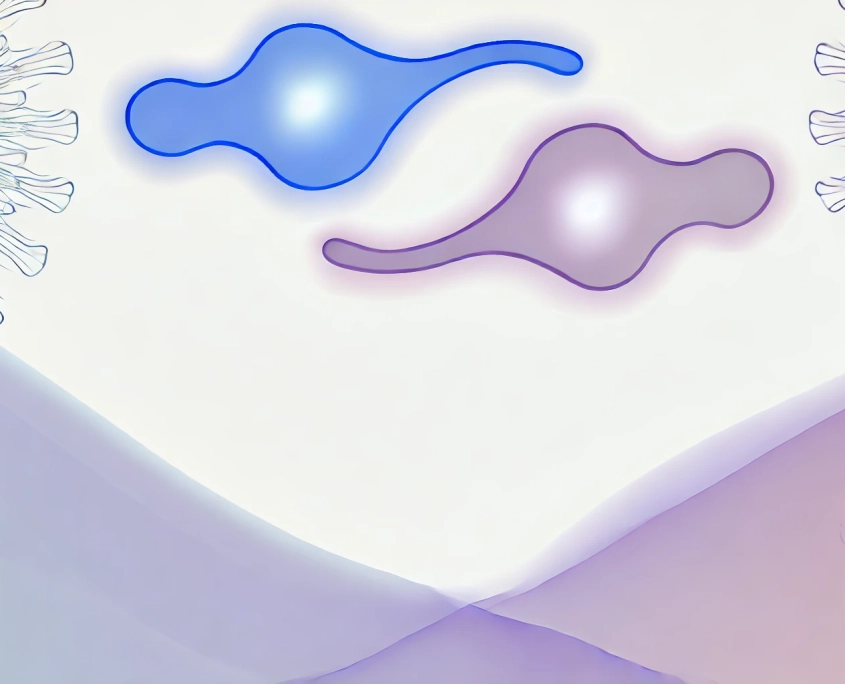
Transfer Factor Multi-Immune™ by Researched Nutritionals is an advanced immune support formula designed to enhance immune activation, T-cell function, and overall immune modulation. It combines bovine-derived transfer factors, whole colostrum, and immune-supporting herbs and mushrooms to provide a robust response against pathogens. This paper explores the formulation, mechanisms of action, clinical benefits, and recommended use of Transfer Factor Multi-Immune™, highlighting its potential as a comprehensive immune-boosting supplement.
Transfer Factor Multi-Immune™ offers a clinically researched blend of transfer factors, colostrum, and botanicals aimed at optimizing immune system function. Transfer factors are small immune molecules that facilitate communication between immune cells, aiding in immune memory and response. Colostrum provides immunoglobulins and other bioactive compounds to further enhance immune support. This paper evaluates the formulation, therapeutic benefits, mechanisms of action, and potential applications of Transfer Factor Multi-Immune™ for immune health.
1. Composition of Transfer Factor Multi-Immune™
1.1 Primary Ingredients
- Zinc (as zinc citrate): Each serving provides 15 mg of zinc, essential for immune cell function and enzyme activity, representing 136% of the daily value.
- Selenium (as L-selenomethionine): Contains 70 mcg of selenium per serving, an antioxidant mineral that plays a crucial role in immune function, offering 127% of the daily value.
1.2 Proprietary Blends
- NK Maximizer Bioplex™: This blend provides 1,083 mg of ingredients designed to enhance natural killer (NK) cell activity, a critical aspect of immune defense. Key components include:
- Transfer Factor NK™: A proprietary blend of purified colostrum, transfer factors, and proline-rich polypeptides (PRP), which support immune communication and response.
- Larch Arabinogalactan: A polysaccharide that stimulates macrophage activity and supports immune cell proliferation.
- IP-6 (Inositol Hexaphosphate): Known for its antioxidant properties and immune-stimulating effects.
- Shiitake & Maitake Extracts: Medicinal mushrooms with beta-glucans that enhance immune function.
- Macrophage and T-Cell Pro Blend™: This 270 mg blend focuses on macrophage and T-cell support, with:
- Beta Glucan: A polysaccharide that stimulates macrophages, neutrophils, and natural killer cells.
- Astragalus 40% Extract: Known for its adaptogenic and immune-supporting properties, especially in T-cell modulation.
- Healthy Cell GTP™: A 400 mg blend of polyphenol-rich extracts that support cellular health, including:
- Green Tea Extract: Standardized to 98% polyphenols, providing antioxidants that protect immune cells.
- Pomegranate Extract: Provides ellagic acid, an antioxidant that supports immune cell function.
1.3 Additional Ingredients
- Gelatin (Capsule Shell), Silica, Vegetable Stearate: These components are used in the capsule formulation, ensuring stability and ease of ingestion.
2. Health Benefits of Transfer Factor Multi-Immune™
2.1 Immune Activation and Modulation
- T-Cell and NK Cell Support: The transfer factors and PRP in the NK Maximizer Bioplex™ are specifically designed to enhance natural killer (NK) cell and T-cell responses, making the immune system more effective in identifying and targeting pathogens.
- Cytokine Regulation: The supplement helps balance cytokine production, which plays a critical role in modulating inflammation and immune response.
2.2 Antioxidant Protection
- Antioxidant Defense: Ingredients such as green tea and pomegranate extracts provide strong antioxidant support, helping to protect immune cells from oxidative damage, which can compromise immune function over time.
2.3 Cellular Health and Recovery
- Macrophage Activation: The Macrophage and T-Cell Pro Blend™ supports macrophage activity, essential for clearing pathogens and maintaining tissue health. This also aids in immune system resilience and recovery.
2.4 Gut and Systemic Immunity
- Colostrum and Transfer Factors for Gut Immunity: Colostrum components contribute to gut health by supporting mucosal immunity, which can positively influence systemic immune function.
3. Mechanisms of Action
3.1 Transfer Factors and Immune Communication
Transfer factors in the NK Maximizer Bioplex™ act as messengers between immune cells, enhancing immune recognition and response. They stimulate the production and activity of T-cells and NK cells, promoting a rapid and effective immune response to various pathogens.
3.2 NK and T-Cell Activation
Natural killer (NK) cells are crucial for the innate immune response, targeting and eliminating virally infected cells and tumors. Transfer Factor Multi-Immune™ enhances NK cell cytotoxicity, improving the body’s first line of defense against infection. Additionally, T-cell modulation through astragalus and beta-glucan further supports adaptive immunity.
3.3 Antioxidant Activity and Cellular Protection
Green tea and pomegranate extracts provide polyphenols and ellagic acid, both of which protect immune cells from oxidative stress. This helps maintain the integrity and function of immune cells, supporting a sustained immune response.
4. Clinical Applications
4.1 Support for Immunocompromised Individuals
Transfer Factor Multi-Immune™ is ideal for those with weakened immune systems, as it provides immune-modulatory and immune-stimulating agents that strengthen immune defenses without overstimulation.
4.2 Preventive Immune Support
Regular supplementation can help individuals maintain a balanced immune response, supporting immunity during cold and flu season or in high-stress environments where immune function may be compromised.
4.3 Recovery from Illness
The supplement’s ability to enhance NK cell function and support macrophages makes it suitable for post-illness recovery, where immune resilience and cellular health need bolstering.
5. Recommended Dosage and Usage
5.1 Dosage
The recommended dosage for Transfer Factor Multi-Immune™ is three capsules per day, which delivers a concentrated amount of immune-supportive compounds.
5.2 Directions for Use
For optimal absorption and efficacy, it is suggested to take Transfer Factor Multi-Immune™ on an empty stomach or at bedtime. This allows the immune-supporting agents to be absorbed without interference from other foods or supplements.
6. Safety and Quality Assurance
6.1 Source and Purity of Ingredients
The transfer factors and colostrum are derived from hormone-free, BSE-free cows, ensuring the purity and safety of the supplement. Researched Nutritionals also ensures that all ingredients meet stringent quality standards and are free from contaminants.
6.2 Manufacturing Standards
Transfer Factor Multi-Immune™ is manufactured in a facility that adheres to Good Manufacturing Practices (GMP), with strict protocols to maintain product quality and safety. The product is also free from common allergens such as gluten, soy, nuts, and fish, ensuring broader accessibility.
6.3 Clinical Research and Validation
The formulation has been clinically researched, with studies indicating enhanced immune activation, T-cell-mediated response, and cytokine production. These findings support the efficacy and therapeutic value of Transfer Factor Multi-Immune™ for immune modulation.
7. Potential Contraindications and Side Effects
7.1 Sensitivity to Immune Modulators
Individuals with autoimmune conditions or immune hypersensitivity should consult a healthcare provider before using Transfer Factor Multi-Immune™, as the immune-activating properties could affect autoimmune function.
7.2 Interaction with Medications
Those on immunosuppressive medications or anticoagulants should use this product cautiously and under medical supervision, as immune-enhancing ingredients may interact with certain medications.
Transfer Factor Multi-Immune™ by Researched Nutritionals is a comprehensive immune support supplement that leverages transfer factors, colostrum, and immune-supportive botanicals to enhance immune function, particularly NK and T-cell activity. Through a carefully curated blend of immunomodulatory compounds and antioxidants, this supplement offers multi-layered immune support suitable for a range of applications, from general immune maintenance to recovery post-illness. With its clinically researched formulation and high-quality ingredients, Transfer Factor Multi-Immune™ provides a reliable option for individuals seeking to fortify their immune defenses naturally.









